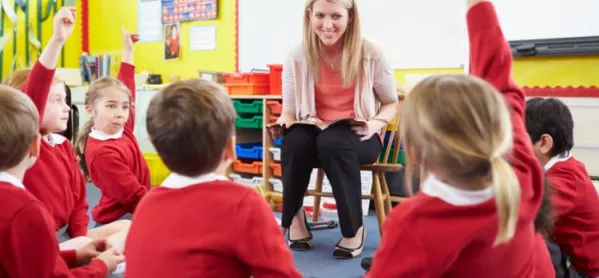Teachers need to learn how teaching their pupils about oracy can be a “significant liberator in the classroom”, a heads’ leader has said.
A packed meeting in Parliament today heard from a series of primary and secondary pupils how being explicitly taught oracy skills had improved their confidence, as well as their performance across a range of subjects.
One 15-year-old who introduced herself as “a working-class girl from Manchester”, praised the work of Reclaim, a charity that gives working class young people a voice in society.
She said: “This is where I found my voice, the one I knew I had but was never quite sure how to use. When I first joined, I was completely ignorant. I had no confidence, and the idea of public speaking, especially in front of people I had never met before, terrified me, and almost everything resulted in me crying, purely because of lack of self-confidence and fear of failure.”
She added: “Oracy skills are taught in schools, however they are taught implicitly through class discussion and debate: two things that separate the kids who are shy and scared to speak from the kids who are confident and aren’t afraid to take part.
“This divide could not happen if oracy skills were taught explicitly, showing young people the importance of their voice and teaching them how to use it, extending their vocabulary and improving their use of standard English, and most of all boosting their confidence.”
Asked whether teachers need to learn more about oracy, Geoff Barton, general secretary of the Association of School and College Leaders, said: “The question is a good one and the answer is ‘yes’”.
He added: “They need to do two things. One is - and the Chartered of Teaching is starting this - at the beginning of their training as teachers is that you learn to use your voice. Most of us never learned that.
“But we also need to win [teachers] hearts and minds to show that oracy is a very, very significant liberator in the classroom which gives other people voices and will help you as a teacher to be able to assess, and we have to win that argument with teachers.”
He added it “could take workload off teachers, and would lead to a happier, more rewarding, more enlightened classrooms”, and would “allow teachers to feel the joy of being in the classroom which is being squeezed out”.
However, he rejected calls for Ofsted to be given a role in oracy.
Emma Hardy, a former teacher and Labour member of the Commons Education Select Committee, said she was hoping to set up an all-party parliamentary group on oracy, with the support of Labour and Conservative members of the committee.





